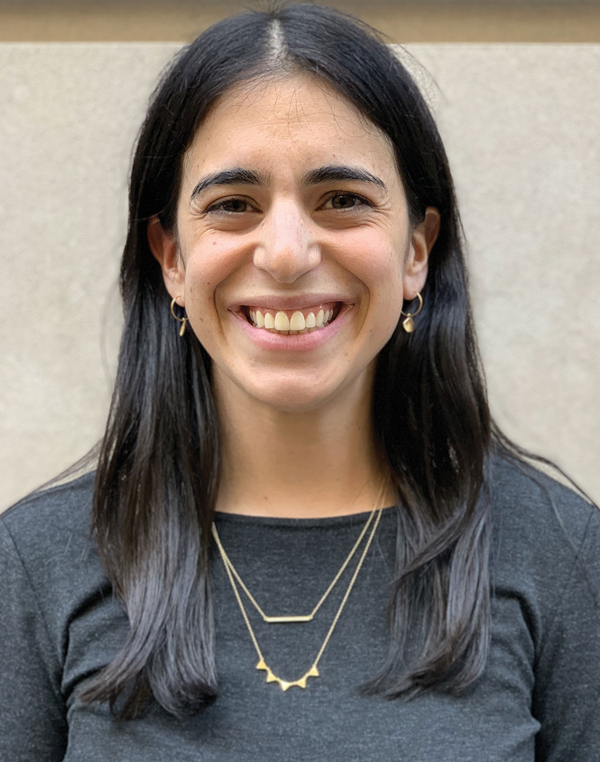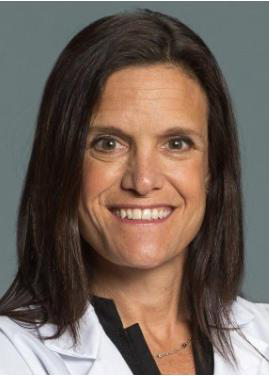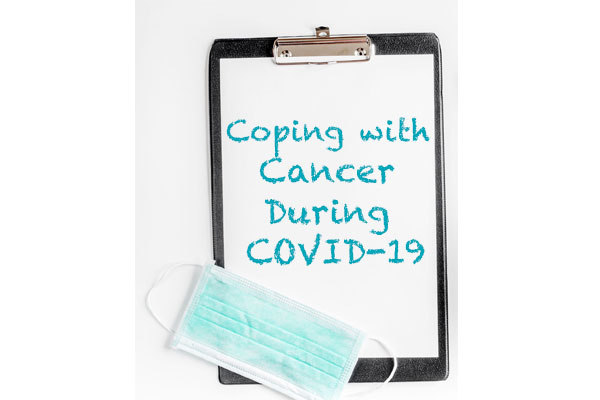Coping with Cancer During COVID-19
What Cancer Survivors Need to Know about Navigating Cancer Care
During the COVID-19 Pandemic
by Caroline Gellman and Stephanie V. Blank, MD
Coping with cancer is overwhelming and stressful under normal circumstances. But coping with cancer during the COVID-19 pandemic adds another layer of uncertainty and frustration. Doctors all over the country have closed or limited access to their healthcare clinics, while many hospitals have cancelled services and procedures. Right now, the risk of exposure to the novel coronavirus may outweigh the benefit of a trip to the doctor’s office for many cancer survivors, especially since cancer survivors may be at higher risk for serious COVID-19 infections.
During this unprecedented time, many healthcare providers have transitioned from traditional in-person visits to telehealth services, or doctor’s visits via phone or computer. Telehealth offers an effective way for you to communicate with your doctor from the comfort and safety of your own home. If your doctor has moved your scheduled office visit to a telehealth consultation, it likely means that postponing an in-person visit for a few weeks or months will not compromise your health. If your doctor has not yet transitioned to telehealth services, reach out to ask if it could be a good option for you. Additionally, if you are coping with a new diagnosis, telemedicine can be an excellent way to get a second opinion.
That being said, while telehealth proves a useful alternative for many cancer survivors during this period of social distancing and sheltering in place, some cancer diagnoses and treatments may require swift action and an in-person evaluation. In some cases, you and your doctor may choose to continue your treatment as planned.
If you are worried about visiting your healthcare provider so often for treatment, let your doctor know your concerns and see if an alternate plan is possible.”
There is no one-size-fits-all approach for cancer treatment during this trying time, but many organizations have provided guidelines on how to manage cancer during the COVID-19 outbreak. We encourage you and your doctor to work together to come up with an individualized plan that takes your preferences and your unique medical situation into account.
Navigating Cancer Care During COVID-19
Here are five different scenarios you may find yourself navigating as you cope with cancer during COVID-19.
1. Check-Ups and Follow-Up Care
Under normal circumstances, you would visit your doctor to discuss changes in medication or to have them check on a surgical incision. Right now, these types of visits may be good candidates for telehealth consults, especially if you are not experiencing any problems. Even if you do have symptoms, it could be helpful to first check in with your doctor remotely so that you can decide together if your concerns call for an in-person visit.
2. Screening
Recommendations for screening during COVID-19 vary depending on the condition. Most of the time, screening is done on a set schedule, rather than waiting until a person is experiencing symptoms. For this reason, routine prostate cancer screening, pap smears, mammograms, and colonoscopies are considered nonessential medical procedures during the pandemic.
Even if prior screening has found abnormal results, delaying follow-up tests for certain non-invasive conditions for a few months may not affect your health long-term. However, your doctor may urge you to visit the office more promptly to rule out invasive disease and to prevent disease progression if you have been experiencing concerning symptoms or if you’ve had high-risk test results in the past. Additionally, once the COVID-19 pandemic is definitively on the decline, it will be important for you to make up the screening visits you have missed.4
3. Imaging and Labs
Many types of imaging and laboratory tests for cancer detection and treatment have been deferred in an effort to minimize the risk of COVID-19 exposure to both patients and providers. Labs and radiology studies performed as a matter of course, or on a standard schedule, may be delayed for the same reasons that follow-up appointments are being delayed: the risk of exposure in getting bloodwork or a CT scan may outweigh any benefit, in the absence of symptoms.
However, in some situations, your doctor may ask you to have bloodwork or imaging done. If so, try to consolidate your visits. As much as possible, you want to avoid making multiple trips to a medical facility.
4. Chemotherapy and Radiation
If you are already undergoing chemotherapy, your doctor may consider regimens that allow for fewer in-person visits or that involve taking a pill at home rather than getting an IV drip at a hospital or clinic. While this type of strategy is not always possible, such a plan could limit your risk of exposure by requiring fewer trips to the clinic or hospital for treatment.
Your doctor may also give you fewer drugs, or a lower dose of a drug, to help reduce side effects and try to keep your blood counts from getting very low. Or, your doctor may put you on non-chemotherapy medications (like hormones, for example) when these options are available. If you were recently diagnosed with a slow-growing tumor, your doctor may propose holding off on treatment for a few months while monitoring your symptoms (called watchful waiting), since starting chemotherapy can weaken your immune system and make it harder for your body to fight COVID-19.
Alternatively, your doctor may believe that sticking with your current chemotherapy treatment plan is essential and may not suggest changes. In this situation, it may be prudent for your doctor to prescribe medicine to keep your blood counts up.
For people undergoing radiotherapy, radiation tends to be given in daily treatments, which means many trips to the doctor. For those who are midway through radiation, missing treatments is usually not recommended. If you are worried about visiting your healthcare provider so often for treatment, let your doctor know your concerns and see if an alternate plan is possible. If you do continue daily treatment, you should take extra precautions to keep yourself safe.
Telehealth offers an effective way for you to communicate with your doctor from the comfort and safety of your own home.”
5. Surgery
As many hospitals face strains while confronting COVID-19, numerous healthcare organizations have discussed how to prioritize access to care for people who need it. If your condition is potentially life threatening or urgent, your doctor will likely recommend scheduling a procedure as soon as possible. In certain scenarios, the risk of delaying care may outweigh the risk of COVID-19 exposure. However, in other cases, your doctor may postpone a scheduled surgery for several months because the risk–benefit ratio calls for waiting
As an example, the American College of Surgeons recently published guidelines that endorse deferring non-urgent surgeries. There are also certain diagnoses, like variants of ovarian cancer or early stage breast cancer, that may benefit from hormone therapy or chemotherapy prior to surgery. Starting these treatments now may prevent the cancer from spreading and delay the need for surgery until the pandemic subsides.
The Bottom Line
More than anything else, your doctor’s goal is to keep you healthy and safe. While we all adjust to the myriad changes in our lives that COVID-19 has wrought, it is important to stay in contact with your doctor. Together, you and your healthcare team can tackle these new challenges by working to meet your goals using the tools and resources available while minimizing your risk of COVID-19.
The good news is that you are likely already taking the necessary steps to stay healthy at home. Continuing to practice social distancing and staying home as much as possible can make a significant difference in decreasing your risk of becoming infected with the coronavirus. In addition, practicing good hand hygiene is a simple step, but it is one that successfully thwarts COVID-19 transmission. If you live with others, try to keep six feet apart, and be sure to disinfect frequently-used surfaces in your home often.
Now is a good time to focus on your wellness, which plays a key role in recovery for many cancer survivors. Try at-home exercise programs, meditation, or a new hobby, and go for long walks outside if you live in an area where you can safely do so. Eat balanced, nutritious meals, and reach out to loved ones or curl up with a good book. Despite the uncertainty we all are facing, it’s important to stay optimistic. By working as a team with your healthcare providers, you can take steps to safeguard your health and well-being as you cope with cancer during the COVID-19 pandemic.


Caroline Gellman is a rising fourth-year medical student at the Icahn School of Medicine at Mount Sinai in New York, NY. She worked in medical journalism with a focus on women’s health for a year during medical school, and she plans to complete residency training in Obstetrics and Gynecology.
Dr. Stephanie Blank is the Director of Gynecologic Oncology for the Mount Sinai Health System in New York, NY. She is a professor in the Department of Obstetrics, Gynecology and Reproductive Science at the Icahn School of Medicine, director of Oncology Programs for the Blavatnik Family Women’s Health Institute, and director of Women’s Health for the Blavatnik Family Chelsea Medical Center at Mount Sinai. A gynecologic oncologist, Dr. Blank specializes in the treatment of people with ovarian, cervical, and uterine cancers, as well as the care of women at increased genetic risk for gynecologic cancer.
Disclaimer: This article is based on the most current information available at the time of publication; however, recommendations regarding public safety and practice may change rapidly during the COVID-19 pandemic. Individuals can get up-to-date information on COVID-19 from the CDC website, CDC.gov.
This article was published in Coping® with Cancer magazine, May/June 2020.


